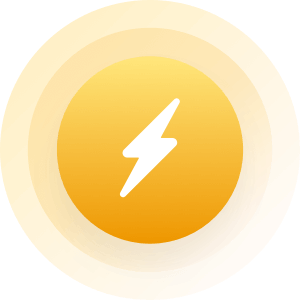| Topic: Calif. Medical Association Calls for Pot Legalization | |
|---|---|
|
The California Medical Association says it’s time to legalize it.
The state’s largest doctorgroup questioned the medical value of marijuana but says it’s time for it to be legal and regulated like alcohol and tobacco, reports the Los Angeles Times . The group’s spokeswoman claims it is the first major medicalassociation in the country to call for the drug’s legalization. “CMA may be the first organization of its kind to take this position, but we won’t be the last. This was a carefully considered, deliberative decision made exclusively on medical and scientific grounds,” said Dr. James T. Hay, CMA President-Elect in a news release . “As physicians, we need to have a better understanding about the benefits and risks of medicinal cannabis so that we can provide the best care possible to our patients.” Indeed, the organizationthat represents more than 35,000 physicians across California took onthe position even as it stated that marijuana has few proven health benefits. But the CMA insists more research needs to be done on the drug and that can’t happen until physicians don’t have to worry about giving patients something that is illegal under federal law. Whilethe group recognized the substance does carryhealth risks, " the consequences of criminalization outweigh the hazards," notes the LAT . “It's an uncomfortable position for doctors,” Dr.Donald Lyman, who wrote the new policy, said. “It is an open question whether cannabis is useful or not.That question can only be answered once it is legalized and more research is done.” For now it is clear that current laws have “proven to be a failed public health policy,” he added. The group immediately came under fire from the California Police Chiefs Association as wellas from other doctors, who qualified the move as irresponsible. |
|
|
|
|
|
Aspirin kills a few thousand people every year, marijuana has never killed anyone in thousands of years. Death ( the last time I checked ) is not safer then life. I'm not saying its 100% safe, hell name one thing on earth that is 100% safe. You will dieif you drink too much water, the air you breath can give you cancer. If anyone can name one drug that's completely nontoxic I'm all ears. Marijuana is the safest drug I've ever heard of, and if its not the safest on earth its damn close.
|
|
|
|
|
|
Aspirin kills a few thousand people every year, marijuana has never killed anyone in thousands of years. Death ( the last time I checked ) is not safer then life. I'm not saying its 100% safe, hell name one thing on earth that is 100% safe. You will dieif you drink too much water, the air you breath can give you cancer. If anyone can name one drug that's completely nontoxic I'm all ears. Marijuana is the safest drug I've ever heard of, and if its not the safest on earth its damn close.   
|
|
|
|
|
|
Legalize it, this is getting ridiculous, apparently no one learned anything from prohibition of alcohol .... :(
|
|
|
|
|
|
Record-High 50% of Americans Favor Legalizing Marijuana Use
Liberals and those 18 to 29 most in favor; Americans 65 and older most opposed by Frank Newport PRINCETON, NJ -- A record-high 50% of Americans now say the use of marijuana should be made legal, up from 46% last year. Forty-six percent say marijuana use should remain illegal. When Gallup first asked about legalizing marijuana, in 1969, 12% of Americans favored it, while 84% were opposed. Support remained in the mid-20s in Gallup measures from the late 1970s to the mid-1990s, but has crept up since, passing 30% in 2000 and 40% in 2009 before reaching the 50% level in this year's Oct. 6-9annual Crime survey. According to the NationalInstitute on Drug Abuse,"Marijuana is the most commonly abused illicit drug in the United States." The National Survey on Drug Use and Health in 2009 found that"16.7 million Americans aged 12 or older used marijuana at least once in the month prior to being surveyed, an increase over the rates reported in all years between 2002 and 2008." The advocacy group National Organization forthe Reform of Marijuana Laws claims that marijuana is the third-most-popular recreational drug in America, behind only alcohol and tobacco. Some states have decriminalized marijuana's use, some have made it legal for medicinal use, and some officials, including former U.S. Surgeon General Joycelyn Elders, have called for legalizing its use. A Gallup survey last year found that 70% favored making it legal for doctors to prescribe marijuana in order to reduce pain and suffering . Americans have consistently been more likely to favor the use of marijuana for medicinal purposes than to favor its legalization generally. Younger Americans Most in Favor of Legalizing Marijuana Support for legalizing marijuana is directly and inversely proportional to age, ranging from 62% approval among those 18to 29 down to 31% among those 65 and older. Liberals are twice as likely as conservatives to favor legalizing marijuana. And Democrats and independents are more likely to be in favor than are Republicans. More men than women support legalizing the drug. Those in the West and Midwest are more likely to favor it than those in the South. Bottom Line Support for legalizing marijuana has been increasing over the past several years, rising to 50% today -- the highest on record. If this current trend on legalizing marijuana continues, pressure may build to bring the nation's laws into compliance with the people's wishes. Survey Methods Results for this Gallup pollare based on telephone interviews conducted Oct. 6-9, 2011, with a random sample of 1,005 adults, aged 18 and older, living in all 50 U.S. states and the District of Columbia. For results based on the total sample of national adults, one can say with 95% confidence that the maximum margin of sampling error is ±4 percentage points. Interviews are conductedwith respondents on landline telephones and cellular phones, with interviews conducted in Spanish for respondents who are primarily Spanish-speaking. Each sample includes a minimum quota of 400 cell phone respondents and 600 landline respondents per 1,000 national adults, with additional minimum quotas among landline respondents by region. Landline telephone numbers are chosen at random among listed telephone numbers. Cell phone numbers are selected using random-digit-dial methods. Landline respondents arechosen at random withineach household on the basis of which member had the most recent birthday. Samples are weighted bygender, age, race, Hispanic ethnicity, education, region, adults in the household, and phone status (cell phone only/landline only/both, cell phone mostly, and having an unlisted landline number). Demographic weighting targets are based on the March 2010 Current Population Survey figures for the aged 18 and older non-institutionalized population living in U.S. telephone households. Allreported margins of sampling error include the computed design effects for weighting andsample design. In addition to sampling error, question wording and practical difficulties in conducting surveys can introduce error or bias into the findings of public opinion polls. View methodology, full question results, and trend data . For more details on Gallup's polling methodology, visit www.gallup.com . |
|
|
|
|








